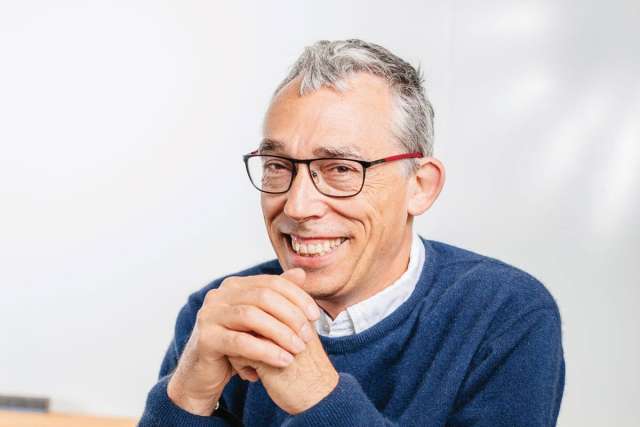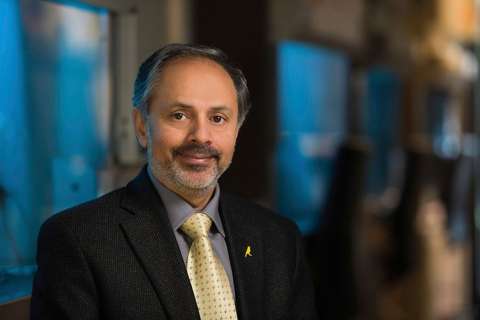Professor, Psychiatry and Biobehavioral Sciences, David Geffen School of Medicine at UCLA
Senior Scientist, Center for Neurobehavioral Genetics at the Jane and Terry Semel Institute for Neuroscience and Human Behavior at UCLA
As a newly inducted member of the Royal Society of London, “It’s a bit surreal and very humbling to be counted among such esteemed scientists as Sir Isaac Newton, Charles Darwin and Stephen Hawking.”
What are your roles as a professor and scientist at UCLA Health?
I’m a geneticist who is dedicated to identifying genetic markers that predispose people to developing depression. In 2015, my colleagues at the University of Oxford and I were the first to link two genetic variants to depression. These findings marked the only time that anyone has definitively linked genetic sequences to major depressive disorder.
After 25 years at Oxford, I joined UCLA Health in 2016 in order to continue my genetics research while also contributing to the UCLA Depression Grand Challenge. I was impressed with UCLA Health’s large-scale vision and commitment to finding new ways to diagnose and treat depression. Over the next 10 to 15 years, the Grand Challenge will have up to 100,000 study participants. Our goal is to cut the burden of depression in half by 2050. Depression is a very difficult puzzle, so having access to a large number of people, as well as being able to tap into all of the resources available at UCLA Health, will be invaluable.
In May, you were named a fellow of the Royal Society of London for Improving Natural Knowledge. How does it feel to be a member of the world’s oldest and most prestigious national scientific society?
It’s a bit surreal and very humbling to be counted among such esteemed scientists as Sir Isaac Newton, Charles Darwin and Stephen Hawking. I’m grateful for the support of my colleagues, who nominated me. I hope to leverage the position to continue my research on the biological causes of depression. Antidepressants only help about half of the people who take them. If we can pinpoint genetic markers, we can develop more targeted and effective treatments.
What inspired you to pursue a career in psychiatry?
My mum was a volunteer for a suicide help line. They were short on volunteers one Christmas Eve, which was really unfortunate because the holidays are extremely difficult for people who are depressed. I was a teenager at the time, so she took me along to help. I was terrified that someone might die on my watch. Instead, I spent time talking to a woman who told me she was considering taking a bunch of pills. By the time we were finished chatting, she said she had changed her mind: She wanted to live. I experienced firsthand the power of listening.
What are some of your outside interests and hobbies?
I’m really enjoying exploring my new home state, including the Central Coast, the Sierra Nevada mountains and the many national parks. Europe doesn’t have any deserts, so I went to Death Valley National Park last year when my daughter came to visit. We were both in awe of the beauty.



